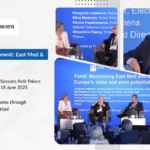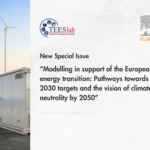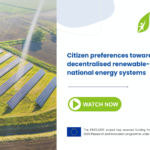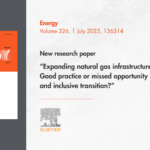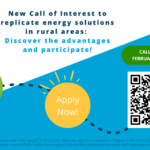In the transition towards decarbonization and climate neutrality, structural changes in the delivery of energy services need to bolster social equality and mobility. The role of citizens to help realize such an ambitious goal has been acknowledged. Yet, Which citizens to involve in this process, How to do so fairly and effectively, and When to involve them remain largely questions whose answers remain unclear to both academic experts and policymakers.
In this context, the overall vision of the European Commission-funded Horizon 2020 “Energy Citizens for Inclusive Decarbonization (ENCLUDE)” project is to help the European Union (EU) to fulfill its promise of a just and inclusive decarbonization pathway through sharing and co-creating new knowledge and practices that maximize the number and diversity of citizens who are willing and able to contribute to the energy transition.
ENCLUDE is dedicated not only to the co-creation of new knowledge with stakeholders about the emergence and consolidation of energy citizenship but also to the uptake of this knowledge to mobilize action for decarbonization, taking into account the interests and struggles of diverse citizen groups, including vulnerable and underrepresented communities, which are not usually invited or expected to participate in these civil processes.
ENCLUDE takes an inter-and transdisciplinary, mixed-method and iterative approach to reach its goals to support decarbonization efforts in Europe and is concerned with knowledge that creates change (also known as “transformative knowledge”), rather than knowledge focused only on deeper understanding (although this is also necessary as a starting point). With the objective to create change through inclusive decarbonization pathways, our research confronts the real world, which is much more complex than any bounded conditions of a laboratory or a model.
The ENCLUDE Consortium consists of twelve European partners and one non-European partner. The partners’ institutions are leading universities, research institutes, small and medium-sized enterprises (SMEs), and a nongovernmental organization. ENCLUDE partners come from countries spanning diverse geographical locations, including a possible EU accession country, with a variety of contexts. These contexts represent different technological progress with respect to the energy transition, varying potential for diffusion of RES, as well as diverse social aspects in terms of awareness for energy-related subjects, acceptance of new technologies, and participation of citizens to the energy transition. The project kicked-off on the 1st of June 2021 and is expected to run until May of 2024
You can find more information about ENCLUDE here.


